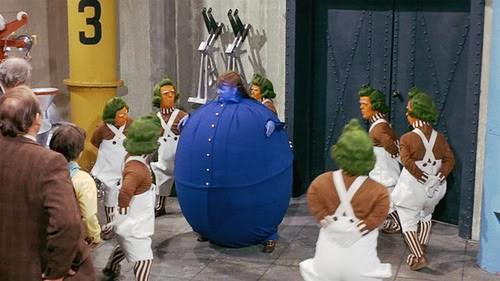Have you ever heard the expression “less is more”? I find this to be extremely true when it comes to the keywords in your PPC account. Now, depending on who you ask, you’ll hear a different response for the age-old question: “How many keywords should I have in my Google Ads account?” When it comes to ad groups, the typical answer is somewhere in the 20-25 keyword range, and definitely no more than 30 keywords per ad group. Keep in mind that this is a loose guideline, and isn’t anything that is set in stone. The important thing at the end of the day is that the keywords in each ad group are closely related to one another, so that you can create super-specific ad copy.
I’m here to tell you that it doesn’t serve you to bloat your PPC account with too many keywords. There is definitely no need to strain yourself attempting to reach that 30-keyword mark in each ad group; it is actually perfectly okay to have an ad group with less than 30 keywords. In fact, chances are, if your campaigns contain ad groups with less than 30 keywords, then you’ve organized your account efficiently and can create that all important relevant ad copy. I have worked with plenty of clients whose ad groups contain no more than four or five keywords, and they have generated strong results.
Having too many keywords in your PPC account is actually consistently listed as one of the most common PPC mistakes. I’m serious, just a little bit of PPC research showed me that having too many keywords per ad group is one of the most frequent PPC errors.

The ugly result of bloating: Violet Beauregarde
There are three reasons why I recommend against having too many keywords in your PPC account.
#1. Not enough room in your daily budget
Let’s imagine you run a campaign with a daily budget of $25. Let’s also imagine the campaign has 25 keywords, each with an average CPC of $1. On average, this allows the campaign the opportunity to generate 25 clicks per day. Your keywords have maintained a strong, competitive average position, and you’re generally happy with the way your daily budget is being spent.
Now let’s say you utilize keyword research tools to identify some new keyword opportunities, all with an average CPC of $1 (if only it were that simple!), and you find 15 keywords that you think would be effective. You’re not exactly sure which keywords would be best though, so you add all of them. Now, all of sudden, you have 40 keywords running at an average CPC of $1, each vying for a slice of that $25 daily budget. In order to get one click for each keyword in a single day, you would need a daily budget of $40. Your daily budget simply can’t support the demand from your keyword list. This is a problem!

Bilbo Baggins knows what it’s like to be stretched too thin
#2. Your campaigns will turn off once your daily budget has been exhausted
This ties directly into the first reason. For those of you who don’t know, once a campaign’s daily budget has been exhausted, that campaign is “turned off” by Google until the following day. What this means is that Google will not allow your keywords to trigger with search queries once the campaign’s daily budget has been exhausted until the next day. This could potentially be very harmful to your keywords’ performance!
Let’s use our imaginations again, and head back to our example campaign. If one of those 40 keywords typically converts in the evening hours, but now the campaign turns off around noon because of additional keyword clicks, then your high-performing keyword can’t generate conversions for you because of a depleted daily budget. It won’t even get the opportunity to enter the ad auction – yikes.
There are always measures you can take to avoid these situations if you decide that you want to test the new keywords at least for a short period of time. There’s the obvious “increase your daily budget,” but that’s not always wise if you want to maintain profitability and strong return on ad spend, or if you simply don’t have the extra money to spend. You can also think about reducing your keyword bids, to allow some flex room within your campaign’s daily budget, but this is also risky. Reducing bids will help you free up your budget a bit, but you could also risk losing out on your competitive ad rank.

Reducing keyword bids is definitely a gamble, just ask Professor Moriarty.
#3. It’s just plain difficult to maintain a large account
Managing your Google Ads (formerly known as Google AdWords) account is a time-consuming process, regardless of its size. Think of all of the tasks that go into a well-maintained account. Optimizing ad copy, adding negatives, and maintaining bidding and budgets are just a few things you should consistently be doing in your account. Tacking on more and more keywords just compounds all of that. Eventually, things will start to fall through the cracks and your account will suffer for it.
It’s A-OK to test new keywords though!
Don’t get me wrong, it’s a good practice to test new keywords. But it’s important to maintain a solid balance of keywords in your campaigns. When you add new keywords, remove some underperforming ones to make room for the new ones. This will allow you to test new keywords without having to increase your budget if you aren’t in a position to do so.
One of the best resources for identifying keyword opportunities is your search query data. While standard keyword research tools can definitely be helpful, your search query data provides more accurate insight as to what you can expect from your potential new keywords. Keyword research tools can give you estimates like average CPC, total cost, and search volume, but your search query data will give you the actual CPC, cost, and volume for that keyword opportunity, among other metrics. Check out my colleague Phil Kowalski’s blog post for more detailed search query report strategy.

The 80/20 rule: it never fails
One way I like to approach my keyword list is by using the 80/20 rule. For those of you who aren’t familiar with the rule, it basically states that roughly 80% of the effects come from 20% of the causes. Translated to your PPC account, roughly 80% of your results will come from roughly 20% of your keyword list. So you can add keywords and more keywords, but at the end of the day you are simply still going to get your results from roughly 1/5 of your keywords. So while testing keywords is definitely a healthy practice, remember that less is more when it comes to your keyword list.







